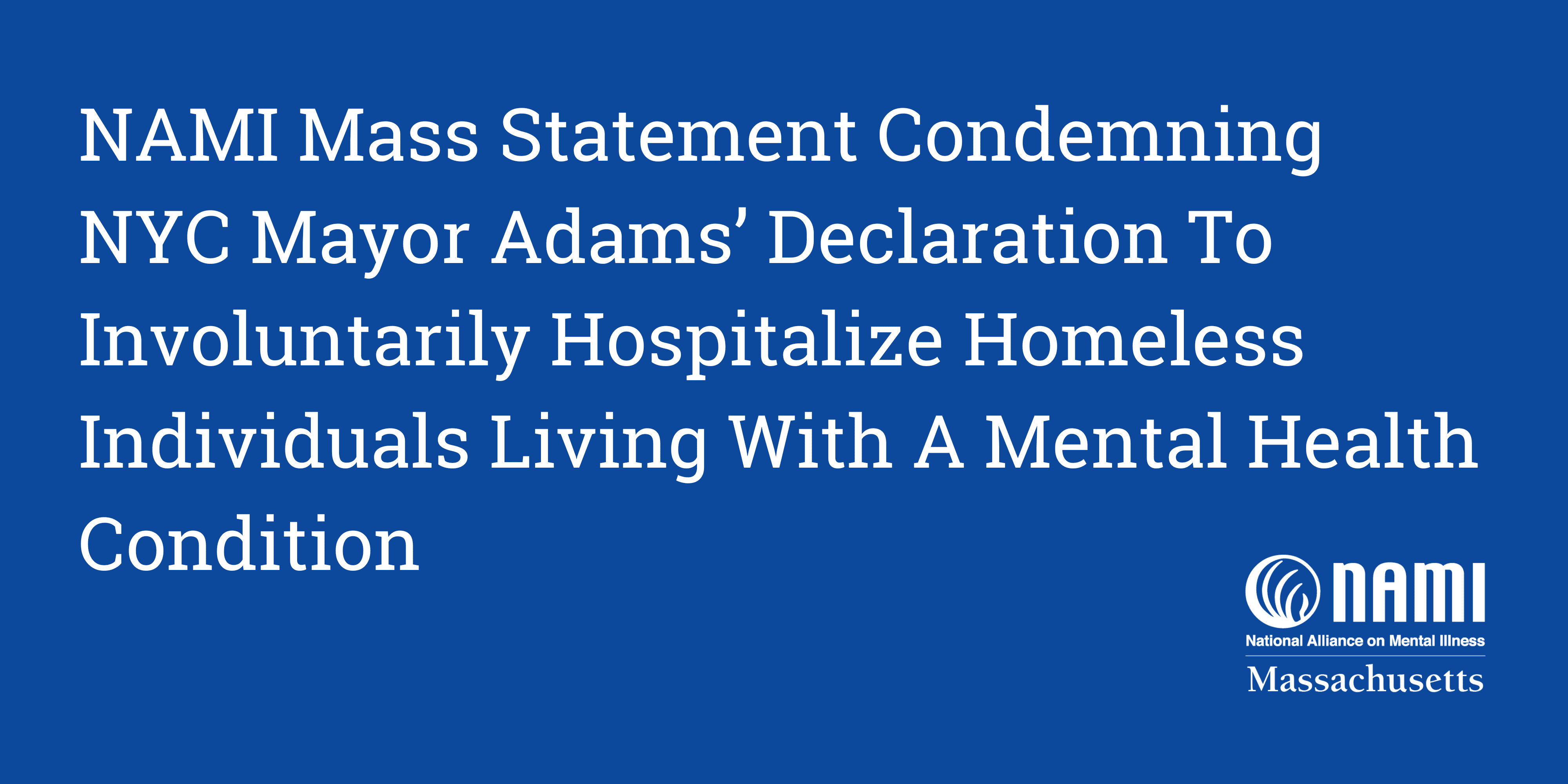Here at NAMI Massachusetts, we want to uplift and support the efforts of NAMI-NYC for the work they are doing to combat Mayor Adams’ declaration to involuntarily hospitalize homeless individuals living with a mental health condition. While we want to promote more public dialogue around said community members, we do not approve of Mayor Adams’ harmful conversations around mental health, emergency services, and housing. We are vehemently opposed to the expanded criteria for involuntary hospitalizations, which are too vague and disproportionately target unhoused New Yorkers, low-income New Yorkers, and communities of color.
Matt Kudish, Executive Director of NAMI-NYC, explained that “even when mandated or involuntary care is needed, our mental health care system remains under resourced and underprepared – 50 in-patient hospital beds are not enough. We need tremendous investment in 24/7 drop-in centers, stabilization centers, and many other programs.” While Kudish highlighted the need for more investment into their crisis response system, this is true for more than just NYC.
Massachusetts has begun investing in expanding access to mental health and addiction treatment by implementing systems reform and including a Behavioral Health Helpline. The Behavioral Health Helpline will work closely with Community Behavioral Health Centers (CBHCs) to combine mobile teams, crisis stabilization, and care coordination. While we are steadfast in waiting for the launch of the Helpline that will provide clinical assessments, triage individual needs, book appointments at community behavioral health centers, and activate emergency services depending upon the circumstance, we cannot stop here. We need to focus on peer-led solutions and seek input from people with lived experience on current crisis intervention models.
As with most state mental health departments, we need more funding and more expansive and comprehensive behavioral health services. In addition to this investment, we also need to focus attention on the unhoused and more country-wide supported housing programs for people living with mental health conditions. Thus, the issues Mayor Adams is trying to address are not just in NYC; they are country wide.
We support the efforts of our partners at NAMI-NYC to elevate the voices of community-based mental health organizations and people living with a mental health condition in conversations around mental health. We also urge our government, police officers, friends, families, loved ones, and supporters to look to community-based mental health leaders, like NAMI, for information and action on how to best support the mental health community. While our government officials and police officers are part of conversations on mental health, they are not the experts on serving individuals living with a mental health condition.
Download the Statement (pdf)





